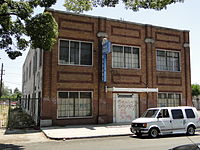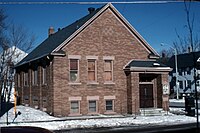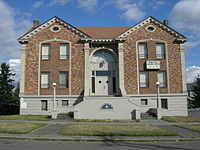BLACK SOCIAL HISTORY Prince Hall Freemasonry is a branch of North American Freemasonry founded by Prince Hall in the 18th century and composed predominantly of African Americans. There are two main types of Prince Hall Freemasonry, one of which consists of independent Grand Lodges, some of which are considered regular by the United Grand Lodge of England and the Prince Hall National Grand Lodge.
Interest
The Masonic fraternity was attractive to some free blacks like Prince Hall because freemasonry was founded upon ideals of liberty, equality and peace.Petitions for admittance into existing lodges
Prior to the American Revolutionary War, Prince Hall and fourteen other free black men petitioned for admittance to the white Boston St. John’s Lodge. They were turned dowNGrand Lodge of Ireland
Having been rejected by colonial Freemasonries, Hall and 15 others sought and were initiated into the Masonry by members of Lodge No. 441 of the Grand Lodge of Ireland on March 6, 1775. The military lodge was attached to the 38th Foot (renamed "The 1st Staffordshire Regiment") in 1782.The Lodge was attached to the British forces stationed in Boston. Hall and other freedmen founded African Lodge No. 1 and he was named Grand Master. Other African Americans included Cyrus Johnston, Bueston Slinger, Prince Rees, John Canton, Peter Freeman, Benjamin Tiler, Duff Ruform, Thomas Santerson, Prince Rayden, Cato Speain, Boston Smith, Peter Best, Forten Horward, and Richard Titley, all of whom apparently were free by birth.When black men wished to become Masons in the new nation the white members of the Lodge had to unanimously vote to accept a petitioner to received Masonic degrees. If one white person voted against the petitioner that person would be rejected. In a letter by General Albert Pike to his brother in 1875 he said, "I am not inclined to mettle in the matter. I took my obligations to white men, not to Negroes. When I have to accept Negroes as brothers or leave Masonry, I shall leave it." Masonic and Grand Lodges generally excluded African Americans. Since the votes were anonymous, it was impossible to identify the member who had voted against accepting a black member. The effect was the black men who had legitimately been made Masons in integrated jurisdictions could be rejected. Racial segregation existed until the 1960s and still persists in some jurisdictions.
The black Masons therefore had limited power. When the military lodges left the area, they were given the authority to meet as a lodge, take part in the Masonic procession on St. John’s Day, and bury their dead with Masonic rites but could not confer Masonic degrees or perform any other essential functions of a fully operating Lodge.
Grand Lodge of England
Unable to create a charter, they applied to the Grand Lodge of England. The Grand Master of the Mother Grand Lodge of England, H. R. H. The Duke of Cumberland, issued a charter for the African Lodge No. 1 later renamed African Lodge no. 459 September 20, 1784. The lodge was the country's first African Masonic lodge.Due to the African Lodge's popularity and Prince Hall's leadership, the Grand Lodge of England made Hall a Provincial Grand Master on January 27, 1791. His responsibilities included reporting on the condition of lodges in the Boston area. Six years later, on March 22, 1797 Prince Hall organized a lodge in Philadelphia, called African Lodge #459, under Prince Hall’s Charter. They later received their own charter. On June 25, 1797 he organized African Lodge (later known as Hiram Lodge #3) at Providence, Rhode Island.
Author and historian James Sidbury said
"Prince Hall and those who joined him to found Boston's African Masonic Lodge built a fundamentally new "African" movement on a preexisting institutional foundation. Within that movement they asserted emotional, mythical, and genealogical links to the continent of Africa and its peoples.In 1788 John Marrant became the chaplain of the African Masonic Lodge.
The lodge met in the “Golden Fleece”, located near Boston Harbor, during the 1780s and 1790s.[5] They later met at Kirby Street Temple in Boston.
Intervisitation attainment
By 1797 there were at least thirty-four members in the Boston black lodge, but still the lodge was overlooked by mainstream Boston Masons. Integration with the American white Masons was not imminent. Since they were unable to attain integration, the blacks concentrated on recognition from white Masons that black Masonry, descending from Prince Hall of Massachusetts, was legitimate and not "clandestine." That it had received its charter from the English Grand Lodge and was thus entitled to all Masonic rights such as intervisitation between black and white lodges without prejudice. Many Grand Masters hoped that ultimately recognition would lead to integration but they knew it would be a long time before that happened.African Grand Lodge
After the death of Prince Hall, on December 4, 1807, the brethren were eager to form a Grand Lodge. On June 24, 1808 they organized African Grand Lodge with the lodges from Philadelphia, Providence and Boston, which was later renamed the Prince Hall Grand Lodge, in his honor.The Lodge was stricken from the rolls after the 1813 merger of the Antients and the Moderns (two rival Grand Lodges of England), along with many other Lodges. "At the amalgamation of the two Registers after the Union of the two Grand Lodges in England in 1813, African Lodge (and many others at home and abroad) was omitted from the register, there having been no contact for many years. African Lodge was, however, not formally erased."
Independent lodge
After being refused acknowledgment by the Grand Lodge of Massachusetts, the African Lodge declared itself to be an independent Grand Lodge, the African Grand Lodge of Massachusetts.In 1827 the African Grand Lodge declared its independence from the United Grand Lodge of England, as the Grand Lodge of Massachusetts had done 45 years earlier. It also stated its independence from all of the white Grand Lodges in the United States.
This led to a tradition of separate, predominantly African American jurisdictions in North America, which are known collectively as Prince Hall Freemasonry. Widespread racism and segregation in North America made it impossible for African Americans to join many mainstream lodges, and many mainstream Grand Lodges in North America refused to recognize as legitimate the Prince Hall Lodges and Prince Hall Masons in their territory.
For many years both Prince Hall and "mainstream" Grand Lodges have had integrated membership, though in some Southern states this has been policy but not practice. Today, some Prince Hall Grand Lodges are recognized by the Grand Lodge of England (UGLE) as well as the great majority of state Grand Lodges in the US and many international Grand Lodges. The situation is complicated by the level of recognition that is granted, with some lodges giving full "blanket" recognition to all Prince Hall Grand Lodges, while others put on limits with regard to issues such as "intervisitation rights" or treating the Prince Hall Grand Lodges as regular but foreign jurisdiction
Organization
There are two competing sets of organization within Prince Hall Freemasonry, a minority of lodges which are subject to the Prince Hall National Grand Lodge, who are referred to as Prince Hall Origin, and the majority of lodges who are subject to 41 independent state grand lodges who are known as Prince Hall AffiliationNational and international lodges
Today, predominantly black Prince Hall Grand Lodges exist in the United States, Canada, the Caribbean and Liberia, governing Prince Hall Lodges throughout the world.Legacy
Hall’s legacy as a Freemason and a leader has survived with the lodges; Hall has been considered the "father of African Freemasonry." As a Georgia Mason noted, the original local lodge rules written by Prince Hall and his followers in the late 18th century were the first set of regulations drafted by colored men for self-government in the United States and Masonry ever since has striven to teach its members ‘the fundamentals of central government’ which is the basis of American life.”After nearly two centuries of controversy, the Grand Lodge of England was asked to decide the matter of Prince Hall Masonic legitimacy.
While no Grand Lodge of any kind is universally recognized, at present, Prince Hall Masonry is recognized by some UGLE-recognized Grand Lodges and not by others, but appears to be working its way toward further recognition.
Carefully studying the records, the Grand Lodge of England concluded that the Prince Hall Grand Lodge of Massachusetts was indeed entitled to Masonic recognition and this against the tradition that, per state, only one recognized Masonic body should exist.
According to data compiled in 2011, 42 out of the 51 mainstream US Grand Lodges recognize Prince Hall Grand Lodges. The mainstream state Grand Lodges that do not recognize Prince Hall Grand Lodges are located largely in southern states with an estimated 50% of Prince Hall Freemasons: Alabama, Georgia, Tennessee, Mississippi, Florida, Louisiana, Arkansas, South Carolina and West Virginia.


















































No comments:
Post a Comment